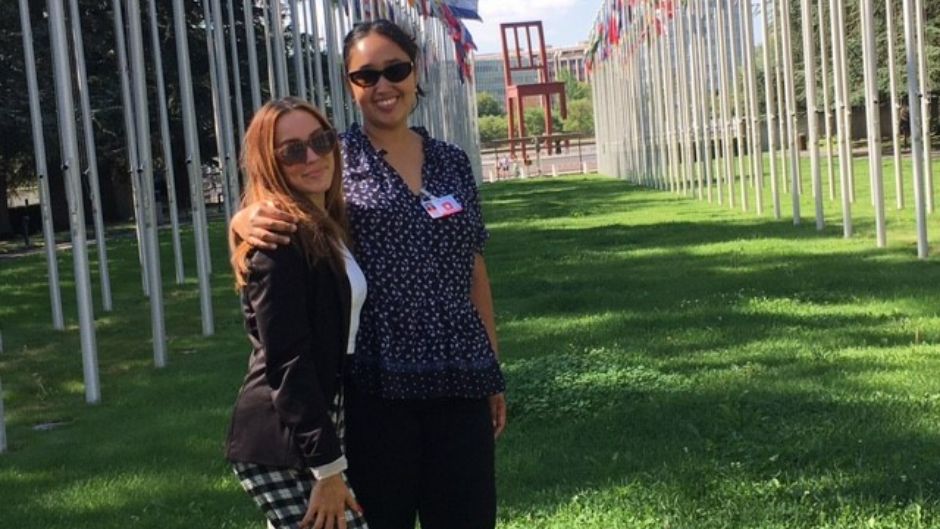During the United Nations session, the Committee on the Elimination of Racial Discrimination reviewed the United States for compliance with the International Convention on the Elimination of All Forms of Racial Discrimination.
Over the last academic year, 14 of the clinic's students, under the supervision of Ezer and Human Rights Clinic Acting Associate Director Denisse Córdova Montes, worked with partners on four submissions leading up to this review. The submissions highlight racial injustice in homelessness and housing, maternal health care, the realization of the right to food, and police accountability. Partners in the endeavor include the National Homelessness Law Center, South Florida Community Development Coalition, Partners for Dignity & Rights, the National Indigenous Women’s Resource Center, the Miami Coalition to Advance Racial Equality, the Florida Health Justice Project, WhyHunger, Food for Maine’s Future, West Virginia University’s Center for Resilient Communities, and a developing Right to Food National Community of Practice made up of legislators and activists.
“It is a privilege for the Human Rights Clinic to collaborate with advocates at the forefront of advancing social and economic rights in the U.S. and to highlight these critical concerns at the international level,” said Ezer.
Moore and Leira, serving as Human Rights Clinic Fellows, engaged in on-the-ground advocacy to secure strong recommendations by the CERD to the U.S. government. The advocacy entailed making oral statements during a public meeting between civil society and the CERD, developing advocacy factsheets on racial injustice in housing and homelessness, the right to food, and individual discussions with members of the CERD and U.S. delegation.
“The link between racial discrimination and homelessness in the United States is clear—Black Americans make up nearly half of the U.S. homeless population at 40% despite making up only 13% of the overall population,” said Moore. "Moreover, the criminalization of life-sustaining activities, such as sleeping in public, has increased by 50% in cities across the U.S.”
Leira underscored the role racial discrimination plays in food insecurity in the U.S. “Hunger is not only a result of lack of access to food, but a result of social and economic policies that dispossess and discriminate on the basis of race,” she said.
In addition to advocacy with the CERD, Leira and Moore participated in a civil society meeting with the U.S. delegation, which included officials from the Department of Justice, Department of State, and the U.N. Human Rights Council. “We are incredibly grateful to have had the opportunity to participate in this session and advance the work of the HRC and our partners," Leira and Moore explained. “The experience to connect in-person with other advocates in the U.S. and with members of both the CERD and U.S. delegation was invaluable. Human rights are interconnected and interdependent; the CERD session was a unique opportunity for collaboration and coalition-building,” added Leira.
The advocacy paid off when the CERD released its Concluding Observations. CERD called upon the U.S. government to “abolish laws and policies that criminalize homelessness,” “affirmatively further fair housing and protection against discriminatory effects,” and “address the impact of exclusionary zoning and law use laws and practices that disproportionately affect racial and ethnic minorities.”
Regarding the right to food, CERD recommended that the U.S. adopt a “rights-based national plan to end hunger in consultation with members of the communities most affected by hunger.” The CERD further prominently highlighted the issue of maternal mortality and called for Medicaid expansion and greater availability of midwifery care. In addition, the CERD urged the U.S. to address excessive use of force by law enforcement officials, which has a disparate impact on undocumented immigrants.
“The CERD’s review of the U.S. will serve to strengthen ongoing national and state-level advocacy on housing, homelessness, maternal health, immigrants’ rights, and the right to food,” said Córdova Montes. “The Human Rights Clinic is excited to continue supporting partners’ advocacy and work toward the domestic implementation of the recommendations presented by the CERD.”
Read more about Miami Law’s Human Rights Clinic

